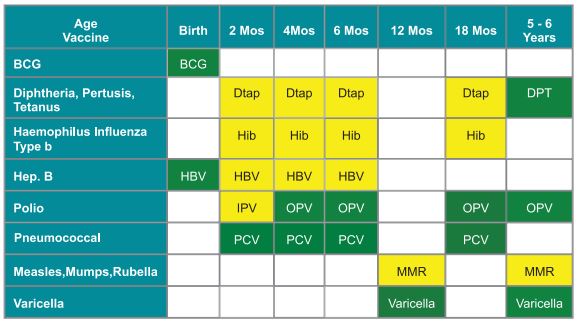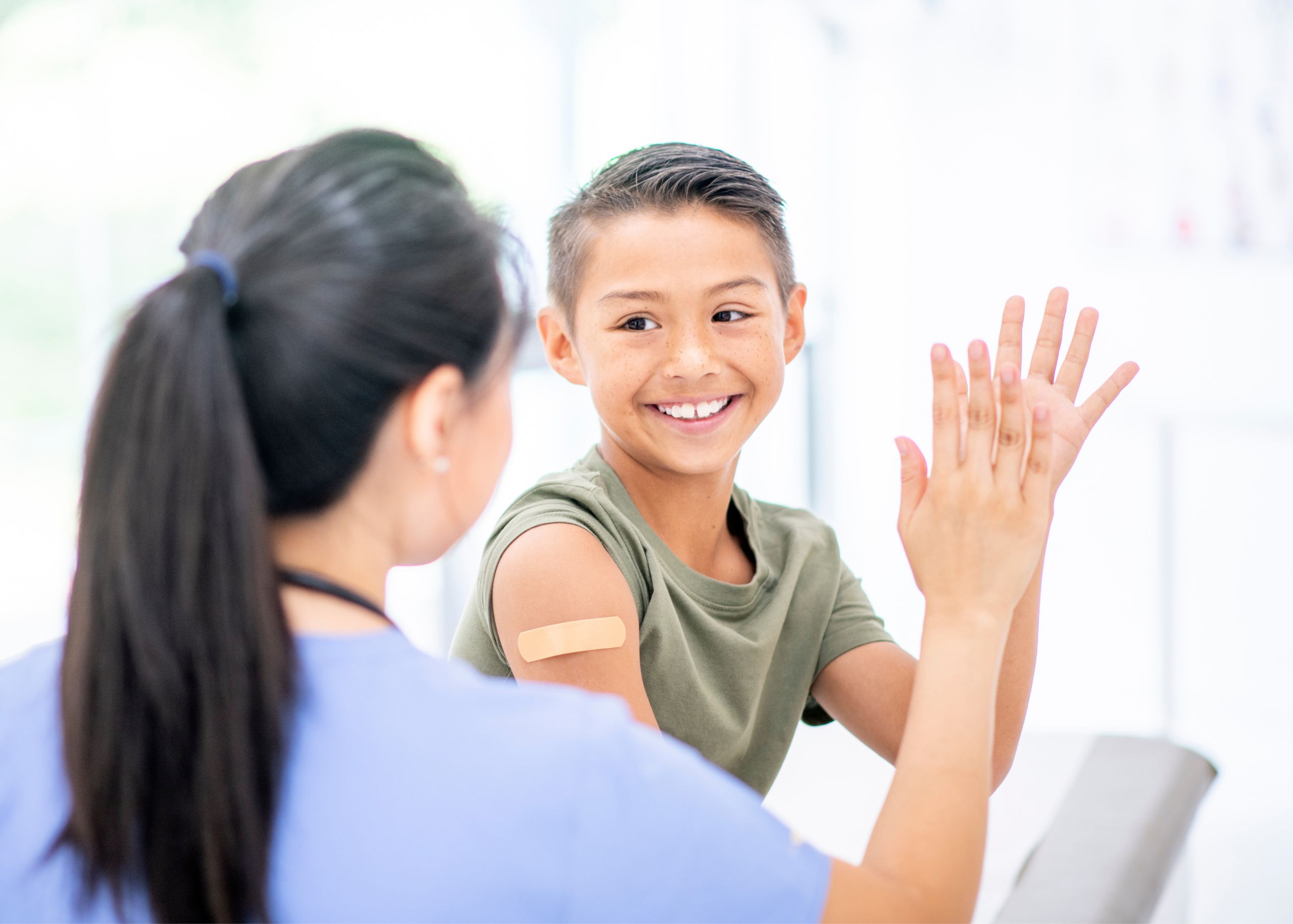What is an Immunization?
Immunization is a shot that helps protect you from certain diseases. These diseases can kill or make people sick, especially young children and older adults. There are many different kinds of vaccines. Some are given only once in a lifetime, while others require multiple doses over a few years to become fully effective. Once vaccination is done, you develop protection against the disease that can last for years or even a lifetime.
Why Should You Immunize Your Child?
If you think immunization is no big deal, consider this: measles still kills about 100,000 people a year. Pneumonia makes about 1 million kids sick a year. And whooping cough is making more than 20 million kids sick each year worldwide. Some parents worry that vaccines can cause autism in their children. But numerous studies have shown no link between autism and vaccines.
Vaccines do more than protect your child from disease—they protect your community’s health. When you immunize your child, you help prevent the spread of disease to others who are too young to be vaccinated or have weakened immune systems, such as newborn babies and people with cancer.
When you immunize your child, they get protection against 14 potentially deadly diseases before they turn two years old. If you choose not to immunize your child, they may be at risk of getting one of these diseases and spreading it to other children who are too young to get vaccinated or cannot be vaccinated because of medical problems.
How do Immunizations Work?
Immunization, also known as vaccination, develops immunity to a disease by being given a vaccine. Vaccines are specially prepared viruses or bacteria that have been altered to no longer cause disease but still stimulate the body’s immune system to create antibodies.
The immune system is made up of many different cells and chemical factors. Some of these cells are called memory B-cells. When the body encounters a foreign substance or antigen, such as a virus or bacterium, the immune system will produce antibodies specifically designed to fight that infection. The memory B-cells serve as a reminder of what type of antibody was produced during the initial infection and can be used to make more antibodies when needed.
When you receive an immunization, your body will produce antibodies against the disease even though you haven’t been infected. This is important because it allows your body to be prepared if you become infected with that disease later. Suppose you become infected with an illness for which you have been immunized. In that case, your memory B-cells will immediately know how to respond and produce large amounts of specific antibodies to fight off the infection.
Are Immunizations Safe?
Immunizations are one of the best ways to protect your child’s health. They have been proven safe, effective, and beneficial time after time. With the help of immunization, we have been able to eradicate smallpox and are getting closer to doing the same for polio, measles, rubella, and other dangerous diseases. Immunizations have saved millions of lives since the first vaccine was administered in 1796, and they continue to do so every day. Ensure your loved ones receive all their recommended vaccines on schedule and get their flu shots every year!
You must speak with your Pediatrician about the immunization schedule recommended for your child.
When Should I Get my Kids Vaccinated?
We’re here to help you understand what vaccines are and when your kids should get them.

DHA Immunization Schedule for Children between 0-6 years
- At Birth: BCG, Hep B.
- Two Months: DTaP, Hib, Hep B, IPV, PCV.
- Four Months: DPT, Hib, Hep B, OPV, PCV.
- Six Months: DPT, Hib, Hep B, OPV, PCV.
- 12 Months: MMR, varicella.
- Eighteen months: DTaP, Hib, OPV, PCV.
- Five to Six Years: DPT, OPV, MMR, varicella.
DHA Immunization Schedule for Persons Aged 7-18 Years
- Td/ Tdap at age 11–12 years for those who have completed the recommended childhood DTP/DTaP vaccination series.
- Meningococcal conjugate vaccine (MCV4) at age 11-12 years and 13-18 years if not previously vaccinated. Meningococcal polysaccharide vaccine (MPSV4) is an acceptable alternative.
- Hepatitis B 3-dose series to those who were not previously vaccinated.
- Varicella 2 doses series if not previously immunized.
- MMR 2 doses at least four weeks apart if not previously immunized
- The human papillomavirus vaccine is recommended for girls 11-16.
Vaccinations are an essential part of good health. They protect us from diseases that can cause serious illness and even death. They are especially important for children, pregnant women, chronic illnesses, and people with compromised immune systems. Don’t forget to Keep up with the recommended schedule of immunizations for babies and adults!























